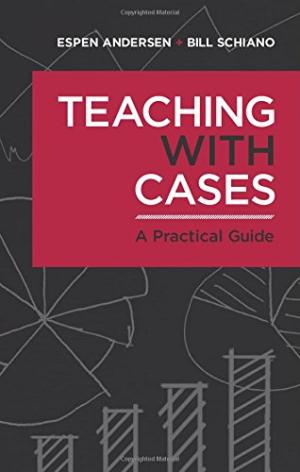Resources
Many undergraduates are culturally shaped to avoid making ethical judgments. They spontaneously adopt relativist and skeptical strategies such as “It all depends,” or “Whose morality?” or “Who's to say?” as ways of fending off the challenge of making moral decisions. The current tsunami that is washing away traditional sexual norms is both a result and a cause of this cultural shift. Case studies can mitigate this decline and help students to grow in both confidence and ability to make good ethical judgments. The case method, used with a Socratic pedagogy, engages imagination and counters the deficits in empathy found in many contemporary students. It moves students toward understanding morality itself. Against skepticism, it assists students in exercising practical reason, culminating in decision. Five cases invite students to overcome extreme relativism, to look for and evaluate relevant differences, and to enter into ethical discussion with other students on the sexual issues they face in their college years.

Journal Issue. Full text is available online.

Click Here for Book Review Abstract: Case method teaching immerses students in realistic business situations--which include incomplete information, time constraints, and conflicting goals. The class discussion inherent in case teaching is well known for stimulating the development of students' critical thinking skills, yet instructors often need guidance on managing that class discussion to maximize learning. "Teaching with Cases" focuses on practical advice for instructors that can be easily implemented. It covers how to plan a course, how to teach it, and how to evaluate it. The book is organized by the three elements required for a great case-based course: 1) advance planning by the instructor, including implementation of a student contract; 2) how to make leading a vibrant case discussion easier and more systematic; and 3) planning for student evaluation after the course is complete. Teaching with Cases is ideal for anyone interested in case teaching, whether basing an entire course on cases, using cases as a supplement, or simply using discussion facilitation techniques. To learn more about the book, and to see resources available, visit teachingwithcases.hbsp.harvard.edu. (From the Publisher)
Online learning tools that teach ethical awareness, critical thinking and ethical decision making. Several “products” are available through contract, including the Ethical Lens Inventory providing students with an awareness of their ethical orientation, Hot Topics Simulations, Ethics Exercises, and the Core Values Simulations
This teaching piece first invites the instructor to consider four criteria when planning a small-group discussion (class size, type of class, instructor preparedness, size of groups). Then, it briefly describes a great many variations on the small-group discussion, such as the jigsaw, the KWL, the fishbowl, the buzz group, the snowball, and several others. This lesson gives the instructor a solid start on a great many kinds of discussion activities.
From the Vanderbilt University Center for Teaching comes this deceptively brief help on case studies. The features of a good case study are described, then a series of bullets serve as an exceedingly practical "check list" for the instructor generating her first case studies for class use.
This Boston University Center for Excellence & Innovation in Teaching article describes the elements of a proper case study, its advantages for learning, guidelines for using case studies in class, and select additional online resources.
This Times Higher Education piece introduces the "case study" as a learning activity. A bit choppy in its prose, the piece nonetheless offers a solid introduction to case studies. Includes reasons why they are valuable, a framework for the activity (motivation, exploration, analysis toward deeper understanding), instructions for preparation, and the attention to the use of case studies in examinations.
Active Learning Techniques including Peer Instruction, Class Debate, Role-Playing, Case Studies, and Creative Scenarios and Simulations.
An online version of a conference workshop that analyzes a case of a “Very Dedicated Professor” in order to demonstrate interactive case techniques and provide a basis for examining case design, presentation alternatives, and other important aspects of the process – while raising issues of values and ethics in the classroom.